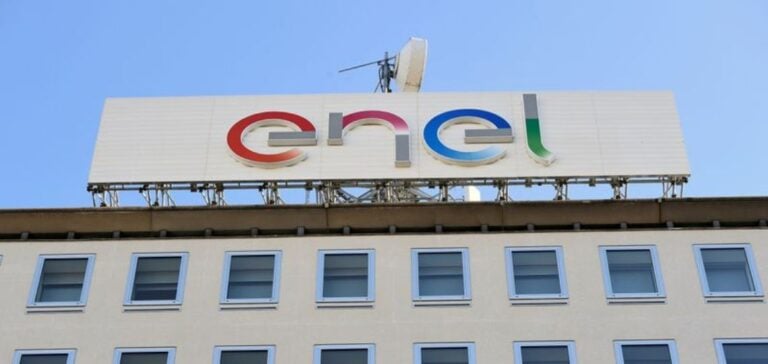Enel posted adjusted net income of 3.9 billion euros, up 20.6% excluding exceptional items.
Nevertheless, the company’s overall sales fell by 17.8% to 38.7 billion euros.
This decline was mainly due to lower energy prices and volumes sold.
Higher revenues from renewable energies partly offset this decline.
Flavio Cattaneo, CEO of Enel, underlines the significant organic growth and rigorous execution of the Group’s strategic plan.
Enel is maintaining its full-year forecasts, with net profit excluding exceptional items of between €6.6 and €6.8 billion, and EBITDA excluding exceptional items of between €22.1 and €22.8 billion.
The company also expects to pay a dividend in excess of the minimum of 0.43 euros per share.
Debt reduction and asset disposals
Debt management is a priority for Enel.
The company is reducing its net debt by 4.6% to 57.4 billion euros, with a projection of 55 billion euros after completion of ongoing asset disposals.
Enel plans asset disposals totaling 21 billion euros as part of its 2023-2025 strategic plan.
A notable transaction is the sale of 49.99% of EGPE Solar, Endesa’s subsidiary in Spain, to Masdar for 817 million euros, valuing the company at 1.7 billion euros.
Enel is thus restructuring its portfolio to focus more on renewable energies, which now account for 69.9% of its total production, compared with 17.4% for thermal power and 12.7% for nuclear.
Impact of Renewable Energies
The transition to renewable energies is at the heart of Enel’s strategy. The increase in the share of renewable energies in the company’s total production illustrates this desire to diversify energy sources and reduce dependence on fossil fuels.
This transition is essential if we are to achieve our sustainability objectives and meet investors’ expectations.
Enel’s solid financial performance, despite volatile energy prices, demonstrates the robustness of its business model.
The increase in revenues from renewable sources partly offsets the decline in thermal energy sales, offering long-term financial stability.
Future prospects and challenges
Enel plans to strengthen its position in the renewable energies sector while effectively managing its debt.
The strategy of asset disposals and portfolio optimization aims to strengthen Enel’s ability to invest in sustainable and innovative projects.
Given the volatility of the energy market, Enel’s ability to adapt quickly is crucial.
The company is committed to increasing shareholder value through attractive dividends and prudent management of its financial resources.
Enel continues to position itself as a world leader in energy transition, contributing to a more sustainable energy future.
In summary, Enel demonstrates solid financial performance and resilience in the face of energy market challenges.
Debt reduction, growth in renewable energies and an optimistic outlook for the coming year position Enel as a key player in the global energy sector.






















